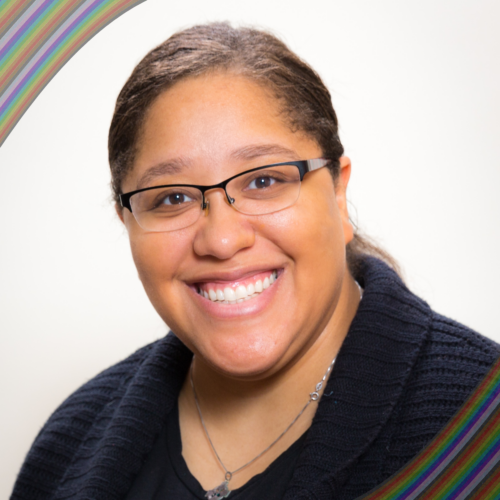John 11: 1-45
For many LGBTQ Presbyterians, the process of coming out, “coming to” (which many racialized communities prefer), recognizing, affirming, or revealing one’s sexual orientation and/or gender identity is a holy process that involves prayer, reflection, and spiritual conversations with others. During this Season of Lent, remembering the process often brings the person into a closer and deeper relationship with God.
I remember when I was in the military, and President Clinton announced “Don’t Ask, Don’t Tell, Don’t Pursue.” This order was Clinton’s way of neutralizing the military’s stance on LGBTQ siblings. This action did more harm than good, and many men and women were discharged from the military while others lied to stay.
When President Obama executed the order to allow LGBTQ siblings to serve freely, there was no backlash, and those who were currently serving felt a sense of freedom and validation. But why did it take so long?
In many ways, LGBTQ siblings have felt dead to the Church, waiting for acceptance, respect, and inclusion.
But what about the background of the story in the gospel of John? Mary and Martha, two women, were living with their brother Lazarus —three unmarried people living together in one house. What we easily overlook in the twenty-first century is how odd, or perhaps even transgressive, this would have been to the Jews of Jesus’ day.
There was pressure on all, women and men alike, to marry and have children. For women, there was no choice in the matter: their men governed their lives even before marriage (either fathers or brothers), and their husbands after. It is true that after a man’s death, his brother was expected to take over the care and control of his widow(s), but this scarcely seems to fit what we know of this household.
Lazarus is not married either, and there is nothing anywhere in the text to suggest that he is in command of the household – quite the opposite. In this household, it is the women who run things.
Despite the awkwardness in reading the text, we hear the similarities of pressure on LGBTQ siblings. Many hide their sexualities, gender identities, and bury their authenticity to fit into societal norms. Today, many Trans-siblings are being murdered. According to the HRC, in the reporting of anti-transgender violence, many of these victims are misgendered in local police statements and media reports, which can delay our awareness of deadly incidents. Death continues to occur.
So the sisters sent word to Jesus, “Lord, the one you love is sick. (v.3)
It is easy to forget that in this passage, Jesus was not merely returning to the friends he had left behind. This encounter occurs just a short while before the Passion. As the disciples knew, by going back to Judea, Jesus was returning to the place where people wanted him out of the way. This is risky business.
As queer folks who believe in Jesus Christ, we are often persecuted, left dead, by those in control of the churches, but this is not a reason for us to stay away or be silent.
The Church cannot be a place where don’t ask, don’t tell, don’t pursue is the norm.
Because the Church has been silent, not speaking out for justice and equity for all, some of its members, namely LGBTQ folks, have experienced death. It is incumbent upon us and LGBTQ Christians to stay the course and use our hands and feet to bring about resurrection.
Jesus said to her, “I am the resurrection and the life. The one who believes in me will live, even though they die; and whoever lives by believing in me will never die.” (v 25, 26)
When Jesus says I am the resurrection and the life, it is a promise of everlasting life and abundant life here on earth. By resurrection, we are referring not just to the soul or spirit, but specifically to the physical body in some way. The Greek word for resurrection, anastasis, comes from the verb anistēmi, “to raise, arise.” The other verb used occasionally is egeirō, “to awaken, rise.” The conquering of death by Jesus Christ means going to the depths of the earth to destroy the implications of the closeted, relegated, marginalized, people of the Church.
In the Old Testament, we also find the Hebrew word she‘ôl, the place of the dead, both good and bad. Some translations refer to this place as “hell,” but more recent translations render it “the grave or the realm of the death” or leave it untranslated and present it as “Sheol”.
Sheol seems to refer to the dark, deep regions, the land of forgetfulness … a place of gloom and despair, a place where one can no longer enjoy life. Yet Psalm 139:8 reminds us: “If I ascend to heaven, you are there; if I make my bed in Sheol, you are there.” So when Jesus defines himself as the resurrection, assurance is given to us all.
Jesus says to Lazarus, “COME OUT!”
The modern sense of coming out publicly in open acknowledgment of our sexual orientation is not what Jesus’ words meant. However, there is a powerful image that we must apply to our own lives. In coming out of the tomb, Lazarus is emerging from darkness and death to light and life. The resurrection experience offers insight into what it feels like to come out and be one’s authentic self.
As an African American Clergy woman and military officer for 20 years, I was not allowed to come out. Even once the ban was lifted in the military and the affirming stance of the PCUSA in 2012, walking in the power of the resurrection took practice.
Throughout this Lenten season, I invite you to practice. Practice coming to yourself knowing that Jesus Christ is the resurrection. Practice using your gifts for the work of the kin-dom of God, knowing that your gifts are needed and valuable. Practice incarnational ministry, for just as Christ died for all, Christ died for you.
The Reverend Floretta L. Barbee-Watkins (she, her, hers) was born to the late Mr. and Mrs. Lawrence Flossie E. Watkins in Atlanta, GA. She graduated from Walker High School and then matriculated to Mercer University in Macon GA where she earned a BA degree in Communications. In 1993, she graduated from Johnson C. Smith Seminary of the Interdenominational Theological Seminary with an emphasis in Homiletics and Christian Education. In 2002 Reverend Watkins began her service at well-known Seigle Avenue Presbyterian Church, now known as “The Avenue”.
Reverend Barbee-Watkins opened the doors for more inclusion and acceptance of all of God’s children.
Reverend Barbee-Watkins continues to serve the church with heart and soul. She has served on the Presbytery Council and served and chair of the Mission and Justice Committee of Council. She also proudly served as the first African American Clergy woman Moderator of the Presbytery of Charlotte in 2013. Reverend Barbee-Watkins was nominated to serve on the Advocacy Committee for Women’s Concerns and now serves as a co-moderator. She also serves on the Presbyterian Mission Agency Board.
Reverend Barbee-Watkins retired from the US Air National Guard in 2017 after serving her country for 20 years as the Deputy-Wing Chaplain.Reverend Barbee-Watkins is the owner of FlowMotion Coaching a performance coaching company which focuses on the total person, mind, body and heart. As a certified coach in Social and Emotional Intelligence, she hopes to help professionals, entrepreneurs and leaders transform and synergize the FLOW of mind body and heart, so that they can live purposeful and powerful lives.






Unbound Social